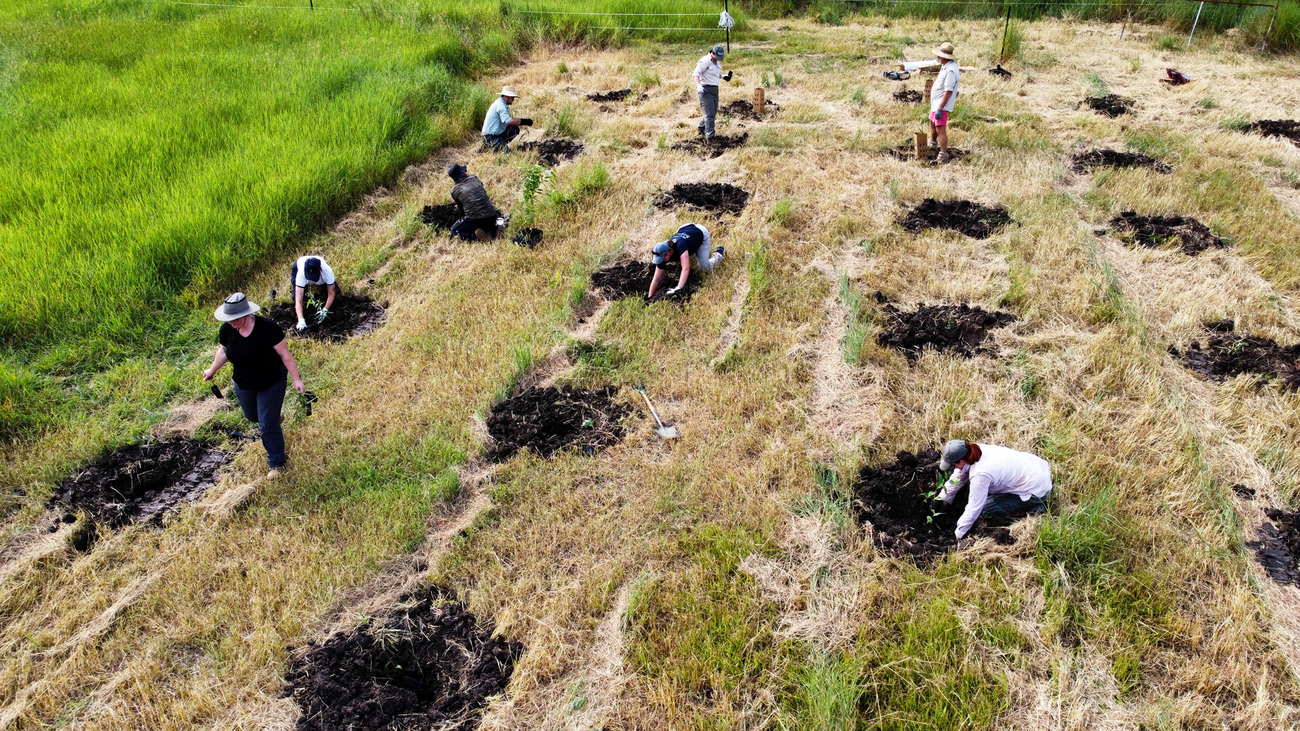Can COP30 be a turning point for wildlife and climate?
Can COP30 be a turning point for wildlife and climate?
As the world gathers in Brazil’s Amazon, it’s time to recognise that climate action must work for people, animals and the planet alike.
Why COP30 matters for wildlife, people and the planet
As leaders from around the world descend on Belém, Brazil for the 30th United Nations Climate Change Conference—better known as COP30, observers are rightly asking whether this COP will mark genuine progress or be just another summit.

The stage is sobering. It seems almost certain humanity will miss the 1.5C climate target set when the historic Paris Agreement was signed just 10 years ago – “a moral failure”, as the UN Secretary General told world leaders as they gathered in Brazil.
Yet despite this alarming news and much upheaval in the world, hopes are high that this COP could still be significant. It’s the first time the COP has been held in the Amazon Rainforest, home to one of the world’s richest ecosystems and countless communities who depend on it.
And that matters, for all of us.
COP30 has also been called the “implementation COP”—a chance to turn promises into action and hold nations accountable for delivering on past commitments. It’s a pivotal moment to ensure climate strategies reflect not only emissions targets, but also the ecosystems, species, and communities most affected by climate change.
The COP has already got off to a strong start with Brazil officially launching their much anticipated Tropical Forest Forever Facility, with US$5.5 billion behind its efforts to keep the world’s remaining tropical forest standing. This is crucial, not just because of the critical role tropical forests play in absorbing carbon, but also because we know it is far more cost-effective to fight climate change by keeping existing forests and other carbon-rich ecosystems intact, rather than struggling to restore them once they are gone.
But ecosystems are not intact, unless all their parts, including the wildlife within them, are thriving. That’s why IFAW sees the strong focus on nature during an Amazon-hosted COP as a key opportunity to recognise the important but undervalued role wild animals play in enhancing the ability of ecosystems to draw down carbon.
The challenge: climate change is a crisis for nature and people alike
Climate change is already reshaping the world around us, especially for the most vulnerable: wildlife, wild spaces, and the people who live closest to them. It’s accelerating biodiversity loss, destroying habitats, and pushing species toward extinction. Climate change is increasing conflict between people and wildlife as animals are forced to move in search of food, water, or shelter. And it’s placing enormous pressure on Indigenous and local communities who are often least responsible for the crisis but most affected by its consequences.
Yet despite these clear connections, wildlife and biodiversity remain too often excluded from climate decision-making, finance, and planning.
The opportunity: nature is a powerful climate solution
Nature isn’t just a victim of climate change—it’s one of our greatest tools to fight it. Intact forests, wetlands, grasslands and healthy oceans store carbon and reduce the impact of floods, droughts, and fires. Healthy populations of elephants, whales, and other species help keep ecosystems functioning and resilient.
At COP30, IFAW will advocate for nature-based solutions that underline the critical role played by wildlife, support communities, and protect the ecosystems we all depend on. We’ll push for the integration of wildlife and biodiversity conservation into national climate commitments and financing mechanisms. And we’ll highlight real-world examples—like our work restoring elephant connectivity across Africa or supporting coastal communities to protect marine life—that prove this approach works.
What we’re calling for
As COP30 begins, IFAW is focused on a few key priorities:
- Integrating wildlife and ecosystems into climate policy. Wildlife protection must be part of national climate commitments—not an afterthought. IFAW has developed practical guidance for how countries can do this through their NDCs (Nationally Determined Contributions)—read our Wildlife Guidelines for NDCs to learn more.
- Scaling finance for nature-based solutions. Funding must go beyond carbon offsets to support biodiversity, community resilience, and ecosystem conservation and restoration.
- Backing community-led conservation. Indigenous peoples and local communities are frontline climate actors. Their leadership and knowledge must be respected, resourced, and central to global solutions.
- Moving from promises to protection. This summit must be about implementation—not just ambition. Wildlife, people, and nature cannot afford more delay.
Hope in action
We’ve said it before: we can’t solve the climate crisis without nature. And we can’t protect nature without wildlife.
With decades of experience working at the intersection of wildlife conservation, community resilience, and global policy, IFAW is bringing proven solutions and strong partnerships to the COP30 table. As the world turns its eyes to the Amazon, we are committed to showing what’s possible when we act—together.
The future we’re fighting for is one where animals thrive in healthy ecosystems, people live safely alongside wildlife, and communities are stronger because they’re part of the solution.
Let’s make COP30 a moment that matters—not just for climate negotiators, but for every life it will impact.
Related content
Every problem has a solution, every solution needs support.
The problems we face are urgent, complicated, and resistant to change. Real solutions demand creativity, hard work and involvement from people like you.